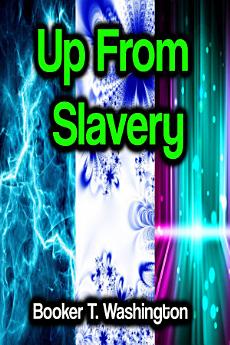關於這本電子書
Up From Slavery Booker T. Washington - Booker T. Washington (April 18, 1856 November 14, 1915) was an African American educator, leader, author and orator and was an adviser to several US presidents. He was born into slavery on a plantation in Virginia, rememberingI cannot recall a single instance during my childhood or early boyhood when our entire family sat down to the table together. On the plantation in Virginia, and even later, meals were gotten to the children very much as dumb animals get theirs a piece of bread here and a scrap of meat there.He was nine when his family gained their emancipation and he describes the rejoicing and the apprehension as freed slaves entered a new life. His mother took the family to the free state of West Virginia. The only name he had known was Booker, but at school, when first asked his name by the teacher, he coolly added Washington to be like the other children who had at least two names. This established him on a path of fitting into the white world.In the course of his life he established the Tuskegee Institute, now Tuskegee University, helped found the National Negro Business League, now eclipsed by the NAACP, and advised several US presidents. Between 1890 and 1915, Washington was the dominant leader in the African American community and of the contemporary Black elite. He established a powerful political and financial network to advance the cause of African Americans through education and business known as the Tuskegee Machine.Up from Slavery chronicles Washington's life from slave to schoolmaster to statesman. It was a best seller when published and for many years thereafter. In it he writesThe temptations to enter political life were so alluring that I came very near yielding to them at one time, but I was kept from doing so by the feeling that I would be helping in a more substantial way through a generous education of the hand, head, and heart.
關於作者
Booker Taliaferro Washington was an American educator, orator, author and the dominant leader of the African-American community nationwide from the 1890s to his death. Born to slavery and freed by the Civil War in 1865, as a young man, became head of the new Tuskegee Institute, then a teachers' college for blacks. It became his base of operations. His "Atlanta Exposition" speech of 1895 appealed to middle class whites across the South, asking them to give blacks a chance to work and develop separately, while implicitly promising not to demand the vote. White leaders across the North, from politicians to industrialists, from philanthropists to churchmen, enthusiastically supported Washington, as did most middle class blacks. He was the organizer and central figure of a network linking like-minded black leaders throughout the nation and in effect spoke for Black America throughout his lifetime. Meanwhile a more militant northern group, led by W. E. B. Du Bois rejected Washington's self-help and demanded recourse to politics, referring to the speech dismissively as "The Atlanta Compromise". The critics were marginalized until the Civil Rights Movement of the 1960s, at which point more radical black leaders rejected Washington's philosophy and demanded federal civil rights laws.
為這本電子書評分
請分享你的寶貴意見。
閱讀資訊
智能手機和平板電腦
手提電腦和電腦
你可以使用電腦的網絡瀏覽器聆聽在 Google Play 上購買的有聲書。
電子書閱讀器及其他裝置
如要在 Kobo 等電子墨水裝置上閱覽書籍,你需要下載檔案並傳輸到你的裝置。請按照說明中心的詳細指示,將檔案傳輸到支援的電子書閱讀器。








